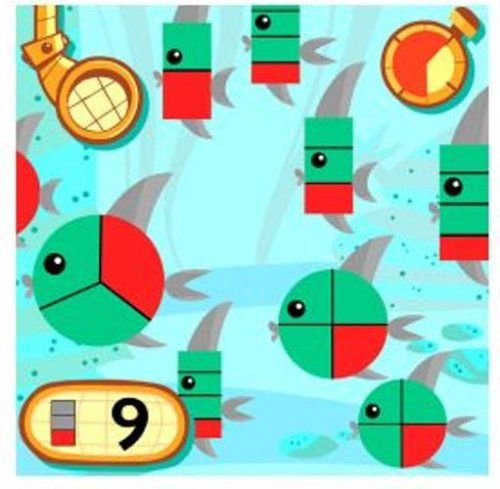
I have always enjoyed playing games. My family frequently plays board games when we get together, I play games with my children almost every day, and (not surprisingly) I’ve used a huge variety of gamesas educational tools in my classroom. Rather, pupils typically ask,”Could we play this again soon?” Some may wonder,”Why play games at a class?” I think it is important to declare the value of game playing for myself, my students, colleagues, parents and many others. Over the years, I have come up with my list of the top five reasons I believe game playing is a powerful instructional tool.
Students learn through the process of playing the games such as The Impossible Quiz. By playing a match, students might be able to understand a new concept or idea, take on a different perspective, or experimentation with various options or variables. For instance, within my beginning Spanish classes, I often played a card game the first week of school. The students were in groups of 4-5. Each person read through the instructions to the card game; then, the game has been played in full silence. After the first round, 1 pupil from each group (typically the”winner”) transferred to a different group. We typically played four rounds.
What my students did not originally know is that every group had received another set of rules. When a pupil moved to a brand new group, he felt confused and was unsure as to why the other people were enjoying otherwise (students typically say”they were playing incorrect”). We used it as a starting point to discuss the adventure of moving to a different country.
Afterward we played the game again, but I enabled all the students to speak. Through discussions, pupils explained the principles to”newcomers,” and the game ran more smoothly (and pupils reported feeling much more fulfilled ). Now, at least someone said,”I get it. You are attempting to show us this is precisely why we need to learn a different language. So we can all clarify the rules to each other.”
Games offer a context for engaging training. As a world languages teacher, I know students require a good deal of practice to internalize important vocabulary and structures. However, for the practice to be meaningful, students must be engaged (and let us be honest, countless workbook pages or textbook exercises are not always highly engaging!) . Through vibrant games of charades, $25,000 pyramid, or others, my students willingly use the language and structures, repeatedly gaining much-needed training.
During games, students may find out an assortment of important skills. There are countless abilities that students may develop through sport playing such as critical thinking skills, creativity, teamwork, and decent sportsmanship. By enjoying word guessing games, I have seen my students’ ability to utilize circumlocution improve dramatically. I love to see my students’ creativity during game sessions (we have used Play-doh, drawing, acting and a number of different activities in our matches ).
Among my first years as a teacher, a student commented he adored the verb match we were playing (a version of”Yahtzee”). I informed him that I was glad he liked it, but that it wasn’t my invention–it was based on a game he might have played in your home. He then told me that he had never played games at home and I had been the only adult who had ever sat down to play a game with him. Occasionally, I am surprised that pupils do not logically think through the way to perform”Guess Who?” ThenI remind myself that this 14-year-old hadn’t played a match with an adult before he came to my course! I see this as an opportunity to educate a wide selection of life skills that don’t necessarily show up in my program’s scope and sequence.
While playing games, pupils create a number of connections with the content and can form favorable memories of learning. Some of my favourite classroom memories come from game times. I won’t ever forget seeing Miguel jump around the classroom to help his peers guess the term”Mono” (monkey). Fortunately, the students won’t forget it either (and each of them got”mono” directly in their evaluations ). The fun, silly or interesting moments tend to stand out in pupils’ memories, and they move on to the vocabulary/structures we’re studying. A positive emotional connection can ease learning. What’s more, many games feature many different different stimuli; some pupils might remember the vocabulary words from acting them outothers recall studying the clues, along with other pupils recall hearing classmates call out answers. Games can offer a variety of sensory experiences for students. Games grab students’ attention and actively engage them. I find that since pupils enjoy playing games, it is a fantastic way to concentrate their attention and actively immerse them in Spanish. This can be especially useful in a huge variety of means. For example, after a fire drill pupils sometimes have trouble settling down and returning to class. A game enables students to quickly engage and transition back to the material we were working on. After hours of state-mandated standardized tests, I find my students are often tired of sitting and full of energy; an energetic